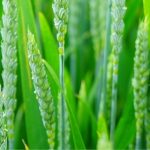Sustainable agriculture is something that is on the rise, with the climatic changes and environmental pollution hitting the roof it’s about time farmers engaged in sustainable farming. Sustainable agriculture is nothing but farming that requires no chemicals, conserves energy and resources, goes easy on the environment, and works well with the locally available resources.
For an agriculture to be truly sustainable, farmers should consider some important factors like a. Environment – farmers should engage in farming practices that promotes sensible resource management of local resources, promising no harm to the ecosystem and enhance biodiversity, b. Profitability – it should also be profitable for the farmers, only then it will be sustainable, and c. Providing for people – the quality of food given to people has to be nutrient rich.
1. Mulching
Mulching is the process of covering the ground with some cover to avoid soil erosing and maintain soil temperature and moisture. Growth of weed can be reduced dramatically by mulching. Sometimes even the most stubborn weed can be eliminated by mulching. This helps in increasing the soil quality. You can use organic items like wood chips and straw for mulching, they also help in retaining the nutrients of the soil and facilitate microorganism growth that conduces the crop growth.
2. Crop rotation
Crop rotation is nothing but growing different crops on the same field in different seasons. This is truly effective in retaining the fertility of the soil. Farmers can highly benefit from the crop rotation as this also reduces the need of using pesticides. Crop rotation helps in degeneration of destructive pests as growing different crops can help destruct the development cycle of pests and therefore reduce the usage of pesticides.
3. Diversified farming
Diversified farming fosters farmers to help maintain the efficiency by encouraging growing varied species in one land by considering the area as one. This will promote the health of all organisms in the soil and achieve more soil fertility. By diversified farming we mean growing animals in a land that helps enhance the growth of plants too. This will also reduce bringing artificial soil fertilisers.
4. Agroforestry
Agroforestry is nothing but growing trees on grazing lands and in between trees. This will help retain soil moisturise and soil fertility. Also, soil temperature is maintained and reduces soil erosion during rains and wind. In the end, the soil quality is maintained and nutrients are retained. Fruits and vegetables from agroforestry are much more nutrient rich. This is said to increase profits for the farmers and also environmentally sustainable.
5. No-till farming
No-till farming is a method of farming without disturbing the soil tillage. This increases water infiltration, retain the nutrients of the soil and maintain the organic nature of the soil. Many agricultural lands have seen a reduction in soil erosion and increase the life of microorganisms on the soil that facilitates agriculture. No-till farming has to increase resilience of the soil.
6. Contour farming
Contour farming majorly helps in soil erosion and increases water absorption and crop production. In contour farming the ruts are made perpendicular. This increases retention of soil nutrients and support environmental sustainability.
7. Organic Animal raising
Making animal graze in open lands can be highly beneficial for the soil as well the animals. Confining animals to a particular area can be a lot less healthy for the animals. This will eventually result in the increase of quality of products we get from them. Soil also gets healthier from the manure from animals.


